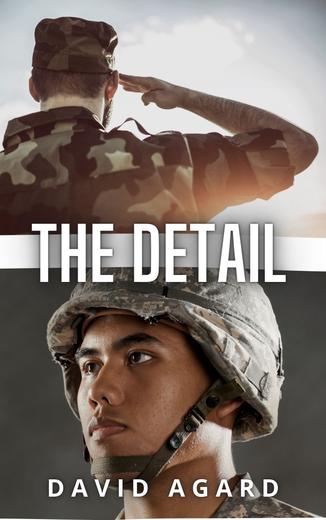
Age:
High School
Reading Level: 3.9
Chapter One
When we grow old, we spend time reflecting on our lives. I don’t know which is more complicated, regretting our mistakes and bad choices or regretting what we did not do.
A regret that haunts me is Why didn’t I hug and comfort Arnold?
I wondered if I could find him and give him a past-due hug.
Chapter Two
1954
We lived thirty-five miles away from Chicago in a rural community. My dad asked me to go there with him to pick up a part for his tractor. It was my first trip to Chicago that I remembered.
When we entered the city, I saw a strange-looking woman.
“Look, Dad, there’s a chocolate lady,” I said.
Dad laughed a little. “No, son, she has dark skin," he said. "They were brought here from Africa. We are vanilla-skinned people, and we came here from Europe.”
Over the years, our community grew. Dad had to sell our eighty-acre farm because it couldn’t support a baby-boom family of six. He broke even on the sale and got a job as a welder in a factory. Three-bedroom ranch houses popped up on the old farm faster than corn because people were moving out of Chicago. Only white people moved here.
Television brought the world, including Black people, into our suburban homes. By the middle 1960s, there was Gayle Sayers of the Bears, my favorite sports hero. My dad was a boxing fan. He liked Cassius Clay until he changed his name to Muhammad Ali and refused the draft.
The evening news showed Black people holding signs and marching in the South. The news also showed Martin Luther King delivering speeches about freedom.
Chapter Three
January 1968
Since I wasn’t college material, I got drafted.
The night before I left for the Army, the family had a special dinner for me. There were three courses: the main course, dessert, and advice served last.
Mom said, “Make friends with the nearest boy to you. They’ll be lonely for home, too.”
Dad was a World War Two veteran. He said, “Don’t volunteer for any detail, stay small, and for God’s sake, don’t get killed. Your brother is there now, and we worry and pray for him daily.”
After basic training, they sent me to Fort Jackson, South Carolina for advanced infantry training. In basic training, one in ten were Black guys. But in infantry training, there were two in ten.
On our first day there, we settled in our barracks. A Black guy found the bunk above me. We looked at each other’s nametags, sewn on our shirts. I was Olsen, and he was Arnold.
I didn’t remember his first name. His last name sounded like a first name, anyway. We did the "Where are you from?" introduction routine. He was from Ohio and I was from Illinois. Remembering my mom’s advice, Arnold and I became friends.
We both had older brothers who were in Vietnam. We both smoked, and shared our cigarettes when the other was out. A sign of an actual buddy.
He showed me a picture of his girlfriend. I showed him a picture of my girlfriend. Both photos were wallet-sized and placed in plastic holders.
On weekend leave, we took a bus to Myrtle Beach. We got drunk and got tattoos of a tiger’s head on our shoulders. I got a sunburn. Arnold did not.
Each day after training, we marched back to the company area, where we stood in formation. The First Sergeant shouted out information about this, that, and the other thing.
Yeah, yeah, yeah, I thought.
After that was mail call. Arnold got a letter from his girl back home. I got a letter from my girl. At chow, Arnold and I sat together.
In the evening, we hung out together. We studied our manuals, took care of our equipment, shined our boots, and talked about home. Arnold told me stories. I told him stories.
We were friends.